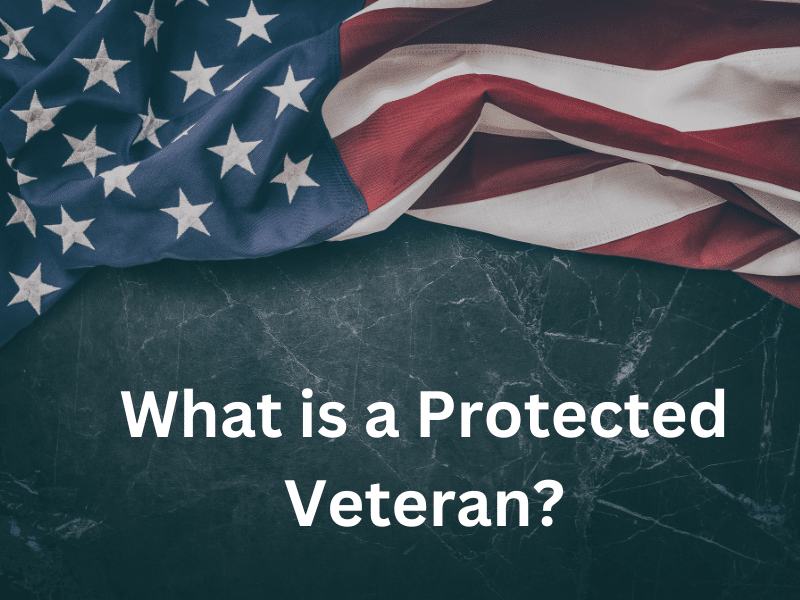Not all veterans are treated equally under the law — but if you’re a “protected veteran,” you hold powerful legal rights.
This guide explains:
- What “protected veteran” means (legally)
- Who qualifies and how to prove it
- What rights and protections you get
- How employers must treat protected veterans
- Real-life scenarios
- FAQs with official resources
Let’s break it down 👇
What Does “Protected Veteran” Mean?
Under U.S. federal law — specifically the Vietnam Era Veterans’ Readjustment Assistance Act (VEVRAA) — certain categories of veterans are legally protected from discrimination in the workplace.
If you qualify, you’re entitled to:
✅ Job preference with federal contractors
✅ Protection from hiring discrimination
✅ Workplace accommodations
✅ Legal options if your rights are violated
Types of Protected Veterans (Under VEVRAA)
| Type | Description |
|---|---|
| Disabled Veteran | Has a service-connected disability verified by the VA |
| Recently Separated Veteran | Discharged from active duty within the last 3 years |
| Armed Forces Medal Veteran | Received the Armed Forces Service Medal for participation in certain ops |
| Wartime/Campaign Badge Vet | Served during a war or earned a campaign badge |
If you qualify for even one — you’re a protected veteran under the law.

Why Protected Status Matters (Big Benefits)
Protected veterans are prioritized for hiring and protected from unfair treatment. Especially if the employer works with the federal government.
Employers Must Legally:
- Recruit and hire protected veterans actively
- Avoid discrimination in pay, promotions, or job roles
- Provide reasonable accommodations (e.g. for disabilities)
- File VETS-4212 reports yearly
- Maintain Equal Employment Opportunity practices
Failing to comply can lead to serious legal consequences for the employer.
Regular Veteran vs Protected Veteran — What’s the Difference?
| Regular Veteran | Protected Veteran |
|---|---|
| Served in U.S. military | Meets one of the VEVRAA protected categories |
| No automatic legal perks | Gets legal hiring priority with federal contractors |
| Not counted in VETS reports | Must be included in contractor hiring reports |
Bottom line: Every protected veteran is a veteran — but not every veteran is protected.
How to Know If You’re Protected
Ask yourself:
✅ Were you discharged within the last 3 years?
✅ Do you have a verified VA service-connected disability?
✅ Did you receive the Armed Forces Service Medal or a campaign badge?
If you answered “yes” to any — you are a protected veteran.
3 Major Federal Laws That Protect You
1. VEVRAA
- Applies to companies with $150,000+ federal contracts
- Requires affirmative action hiring for protected vets
- Prohibits workplace discrimination
- Employers must file VETS-4212 report every year
2. ADA (Americans with Disabilities Act)
- Covers reasonable accommodations
- Includes ergonomic setups, flexible schedules, remote work, etc.
3. USERRA (Uniformed Services Employment and Reemployment Rights Act)
- Protects your job if you’re called to active duty
- Guarantees reemployment with same pay and benefits
Real-Life Scenarios (How These Laws Work)
🔹 Scenario 1: Recently Separated Vet
Marcus left the Navy 2 years ago and applies at a defense contractor. The company gives him priority due to protected status — as required by law.
🔹 Scenario 2: Disabled Veteran
Tina, who served in Iraq and suffers from PTSD, requests a flexible work setup. Her employer must accommodate under the ADA.
🔹 Scenario 3: Medal Recipient
Jacob received the Armed Forces Service Medal for a humanitarian mission. His protected status boosts his application to a federal supplier.
FAQs About Protected Veterans
Q1: How do I prove I’m a protected veteran?
A: Use your DD-214 form or self-identification forms during job applications. You can also ask your local VA office for assistance.
Q2: Can I be denied a job for being a protected veteran?
A: No — federal contractors must not discriminate. In fact, they’re legally required to hire protected veterans under VEVRAA.
Q3: What if my rights are violated?
A: File a complaint with the Office of Federal Contract Compliance Programs (OFCCP). You can also consult a VA legal rep.
Resources for Protected Veterans
Final Word: Use the Rights You Earned
“Your service mattered. So do your rights.”
Being a protected veteran gives you more than a title — it gives you powerful tools to build a stable civilian life.
✅ Use hiring programs
✅ Apply for education benefits
✅ Seek support from veteran-focused organizations
👉 Love reading about tech? Click here to explore our freshest tech blogs
